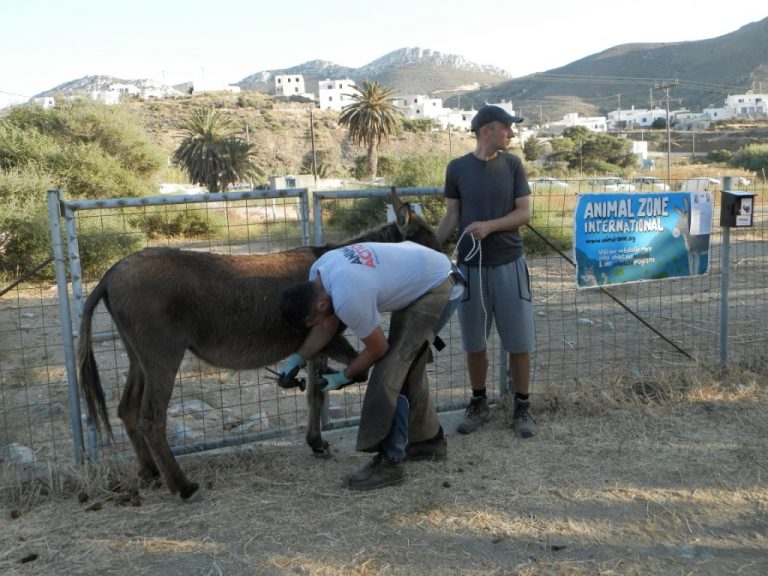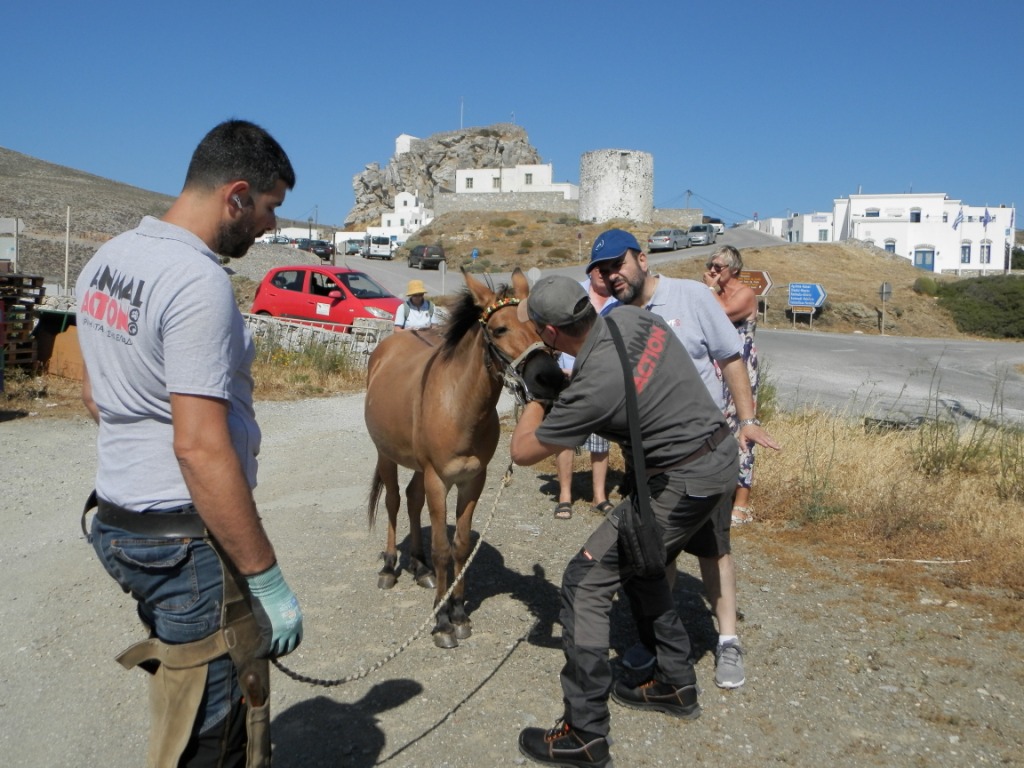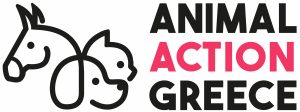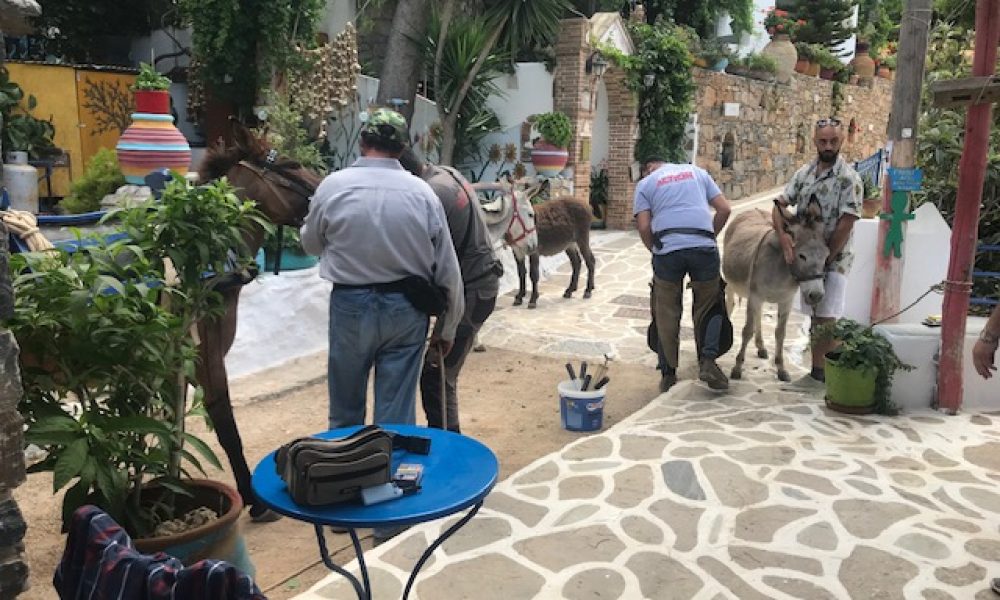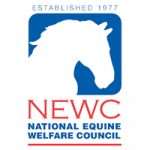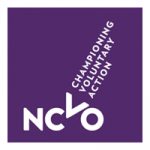On 9 – 12th June, the Animal Action Greece/Animal Action Greece Hellas equine team made a four-day ‘island hopping’ visit to the Cycladic islands of Amorgos, Koufonissia, Donoussa and Naxos, to provide veterinary, dental and farriery care to a total of 48 working equines on the islands.
It was a difficult, tiring and demanding four days with a lot of ferry trips and travelling in general, but our team were very happy with the care the animals received. Even visiting the few equines on the two smaller, remote islands, was worthwhile and improved their lives, as well as the lives of their owners.
Amorgos was the busiest island, with 33 equines, which are used in various agricultural and transport work. Amorgos is a unique and fragile island community, where 2,000 permanent residents live alongside an animal population estimated to be over 30,000 — feral cats, dogs, goats, equines and working farm animals. Many of the equines that our team treated required tooth rasping to help remove their dental sharp edges and hooks, and several also required corrective hoof trimming. The difference was noticeable in the animals we had treated last year, as their general condition was certainly improved.
Napoleon, one of the donkeys that we treated at the local animal welfare shelter, had arrived just the day before our visit, after an order from the police, with a rope tied on one leg, apparently part of a hobbling rope. Elderly and malnourished, with mobility problems, he was suffering with a large wound, which was given the appropriate veterinary treatment, and necessary instructions for his care. Thankfully he will recover quickly!
With the encouragement of our team we released another donkey from a hobbling rope. The owner was afraid that he could not handle the animal easily if she was left to roam free, so used hobbling rope instead. After discussion, he was persuaded to remove the rope and saw for himself that the animal was fine to be handled. These incidents are indicative of the practice of hobbling, or ‘pastouroma’, which sadly still prevails in several parts of the island, but that education can go a long way. The team had a long discussion with the owners to suggest alternative ways to confine their animals, in cooperation with the local animal welfare organisation, who are making a big effort for the abolition of hobbling.
We would like to thank the local animal welfare organisation, Animal Zone International, for all their help given to the team during the outreach on Amorgos and for offering the accommodation, food and car, and especially Litsa Passari who accompanied the team and helped organise the whole schedule!
